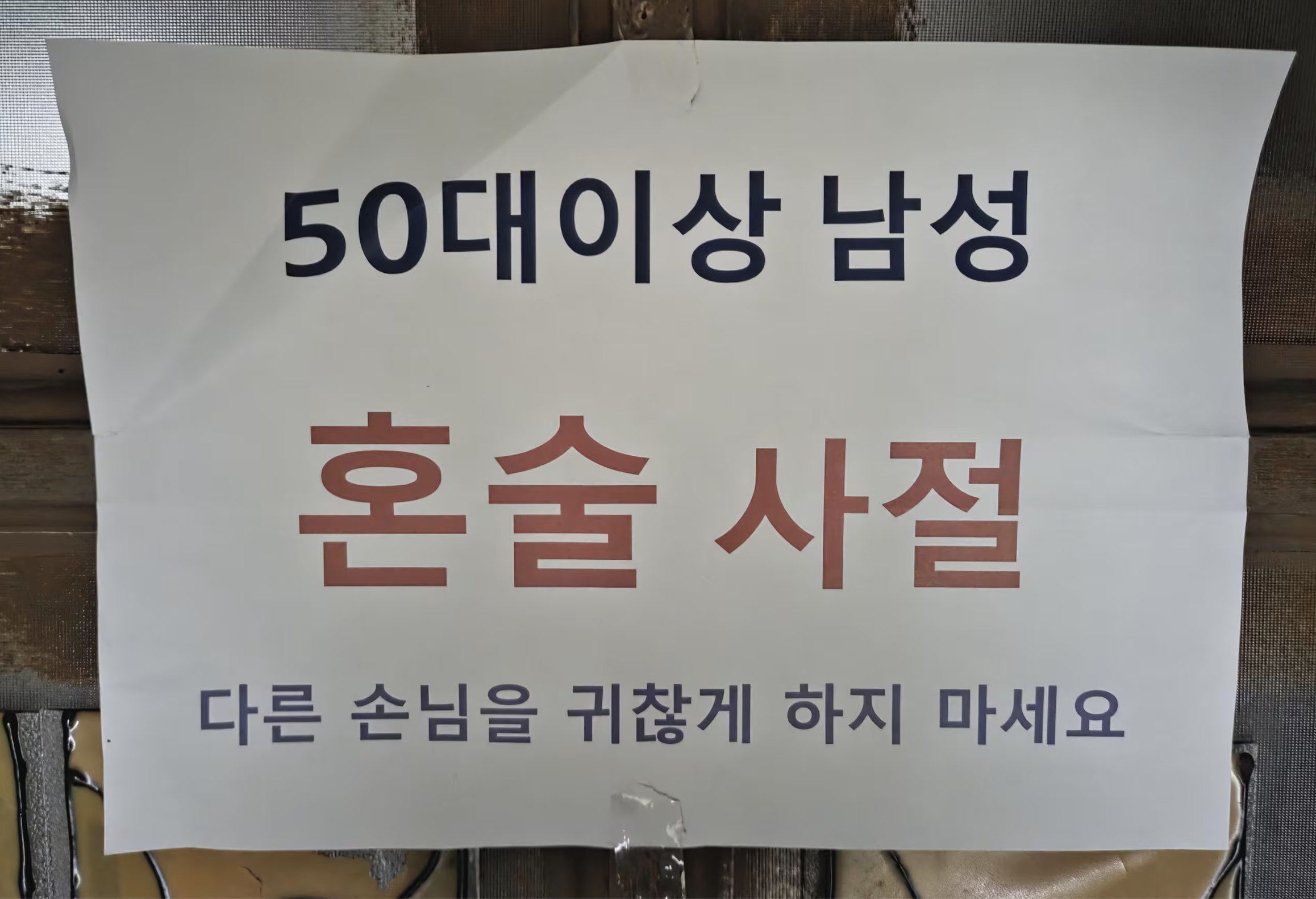A sign reading "Men over 50 are prohibited from drinking alone" hangs at the entrance of a bar near Chungmuro Station in Seoul. Inside, more warnings abound: "If you're loud, all men over 50 must leave" and "Do not talk to younger customers at other tables." Ironically, the bar owner is also in his 50s.
Two months ago, a similar incident occurred in Ulsan, where a bar displayed a notice stating, "South Korean men over 50 are not welcome." This sparked controversy, but many expressed sympathy for the owner. "You don't need to hear the details to understand why," one comment read.
The 30-year-old Ulsan bar owner explained that this demographic often uses vulgar language, makes excessive noise, and smokes indoors. At another rock music venue, the manager noted that most troublemakers, from those demanding songs by Lim Young-woong to those getting drunk and starting fights, are also in this age group.
 |
A notice outside a Seoul bar in 2025 reads: "Men over 50, no drinking alone. Please do not disturb other guests". Photo: Jeong Sang-hyuk |
Men in their 50s constitute South Korea's largest demographic, with approximately 8.7 million people, or 17% of the population.
This generation entered the workforce during South Korea's economic boom. They often held influential positions and became accustomed to a sense of superiority. A few years ago, a pub near Pusan National University put up a sign reading "Professor-free zone" with the message "If you enter, please do not loudly reveal your identity."
However, their golden age has passed.
According to Statistics Korea, this age group accounts for the highest suicide rate (21%) in the country, with men twice as likely as women to take their own lives. This reflects the struggles of a generation facing retirement, declining health, loss of status, and family responsibilities. Employment rates for those in their 50s have declined for 16 consecutive months.
 |
Many bars and entertainment venues in South Korea display signs banning men over 50, citing them as troublesome and disruptive. Illustration: iStock |
Caught between younger and older generations, these middle-aged South Korean men are lost, unable to let go of the past or easily start anew. They turn to alcohol, boasting and shouting in their loneliness.
According to the Shinhan Card Big Data Research Institute, depression and apathy were the most common reasons for mental health consultations among people in their 50s during the first half of this year. Psychological pressure leads many to become talkative or exhibit unusual behavior. Their disruptive actions may be a cry for help, but they are met with social exclusion and discrimination.
Minh Phuong (Chosun)












